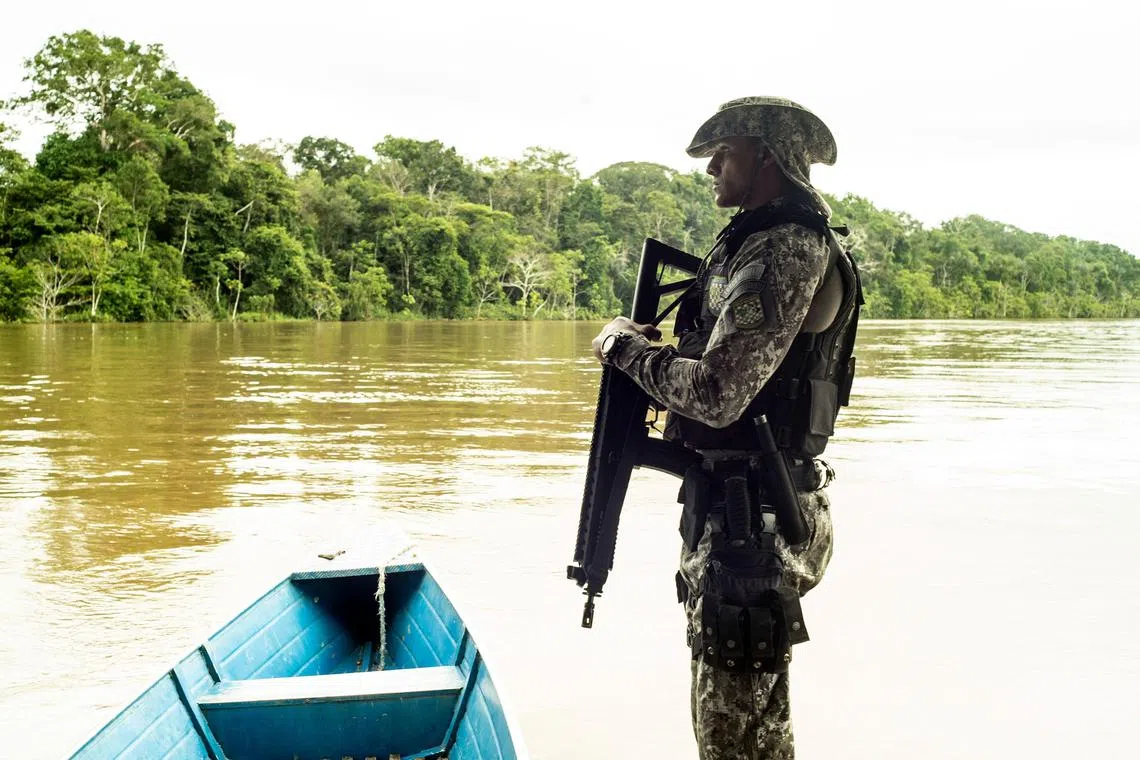Cocaine-fuelled narco laundering is accelerating deforestation, UN warns
Sign up now: Get ST's newsletters delivered to your inbox

Border areas are hotspots where land is cleared to grow coca.
PHOTO: AFP
RIO DE JANEIRO - Drug trafficking proceeds are increasingly getting laundered into illegal logging, ranching and gold mining in the Amazon, in a development that is accelerating deforestation of the rainforest, according to a United Nations report.
Drug trafficking groups in Brazil, Colombia, Peru and Bolivia are diversifying into these environmental crimes, and are leveraging their existing supply chains to transport timber, gold and even wildlife from the Amazon, according to the findings of the World Drug Report 2023.
“Cocaine production in the last couple of years is off the charts,” said Dr Robert Muggah, co-founder of the Igarape Institute, a think tank in Rio de Janeiro, who wrote a chapter of the report on the drug trade in the Amazon. “Brazil is a huge transshipment and consumption country.”
Rising proceeds from trafficking will make it even harder for Brazil to meet its goal of eradicating illegal deforestation of the Amazon by 2028.
Border areas are hot spots where land is cleared to grow coca, and eradication efforts often push this activity into even more remote areas. In Brazil, the criminal group the First Capital Command, or PCC – which has been sanctioned by the US Treasury – is increasingly involved in gold mining on indigenous lands where it uses illegal mines to launder drug profits, according to the report.
The vast majority of cocaine is produced in Colombia, Peru and Bolivia, and production has surged since the end of the pandemic with the normalisation of international trade. Official data over the past decade indicates the frequency and volume of drug seizures in the Amazon have increased. BLOOMBERG


